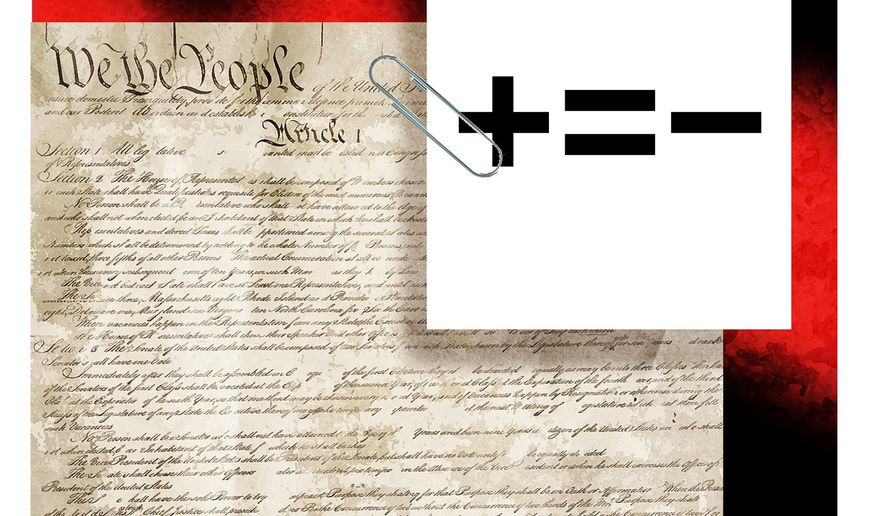OPINION:
Rep. Ken Buck in a social media post relayed that 44 percent of income taxes collected this year have been spent on servicing America’s $34 trillion debt — $34 trillion and growing, that is.
This is unsustainable.
Truth in Accounting estimated each taxpayer’s share of the national debt — defined as publicly held debt plus the amounts held in Social Security and Medicare trust funds — at $981,000. That doesn’t even get into the unfunded but promised Social Security and Medicare payouts; those only spike U.S. debt higher.
Spend, spend, spend. Borrow, borrow, borrow.
America is on a crash course to crash.
“The national debt has increased every year over the past ten years,” U.S. Treasury Fiscal Data wrote.
It’s been manageable because interest rates have remained, for the most part, stable. But rates are rising. The fallacy of fiat is going to be exposed. America has never before defaulted on its fiscal obligations. But there’s a first time for everything. And some analysts are predicting a free fall of the U.S. economy in 2028, the year The Foundation for Economic Education sees as pivotal in regard to Americans’ abilities to manage their debt.
The Congressional Budget Office figures America will reach a federal debt level of $38 trillion by 2030. But historically speaking, the CBO has overestimated revenues 80% of the time. At the same time, the office has lowballed spending.
That means the $38 trillion is likely a dramatic underestimate.
“[W]e cannot run the debt up forever without severe repercussions,” FEE wrote. “There is a point at which the federal debt will have to be monetized, largely because lenders eventually lose their taste for lending.”
In comes inflation.
Out goes growth.
Out goes American prosperity and strength and leadership and yes, national pride.
Today’s national debt is almost equal to the entire U.S. economy, and while lawmakers, like Buck, have expressed alarm over this fiscal fright, little legislative action has been taken. Why? Why not? It’s because politicians don’t like to deal with unpopular issues and nothing says “don’t vote for me” like a good old-fashioned tightening of budget belts. Practically speaking, it’s nearly impossible to campaign and win on a message of “we must spend less and cut programs” when the other guy, the opposition, is adopting the socialist mantra of “we got your back; free college, free health care, free child care for your kids and grandkids.”
As Margaret Thatcher famously said, “The problem with socialism is that you eventually run out of other people’s money.”
Well, politicians bank on being able to keep their hands in taxpayers’ pockets for at least the length of their first term — and then go on national media and point fingers at the other party’s failures to address debt for their next several terms. Talk is cheap, but it does have the intended effect of spending upwards of $34 trillion.
Forget China.
Forget Russia.
Forget Iran and North Korea and nuclear war and World War Three and invasions from terrorists who cross America’s open borders and set up secret cells.
The looming danger in America is our inability to stop spending.
Thomas Jefferson put it succinctly: “The accumulation of debts is a most fearful evil.”
Owing money that can’t be repaid is a form of slavery to the debtor. And this is what America is doing to its younger generations.
• Cheryl Chumley can be reached at cchumley@washingtontimes.com or on Twitter, @ckchumley. Listen to her podcast “Bold and Blunt” by clicking HERE. And never miss her column; subscribe to her newsletter and podcast by clicking HERE. Her latest book, “Lockdown: The Socialist Plan To Take Away Your Freedom,” is available by clicking HERE or clicking HERE or CLICKING HERE.




Please read our comment policy before commenting.